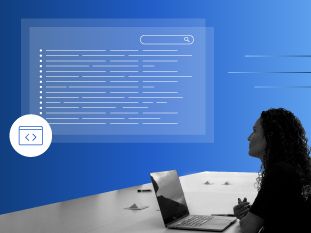
The [Often] Overlooked Skillset: Top 8 Soft Skills for Software Engineers
In the rapidly evolving world of software development, it’s no longer enough to advance your technical skills. You must also have a range of robust soft skills to succeed.
Soft skills include personal traits and habits that allow you to interact effectively with others and navigate workplace dynamics. With your soft skills toolset, you can communicate with clients and stakeholders, approach problem-solving work in teams, and participate successfully in even the most complex project environments. In this blog post, we’ll discuss the top eight soft skills you can develop to help you stand out and advance your career in software development faster. Let’s dive in!
Skill #1: Effective communication
When you think of communication, you likely think first of your ability to speak. There’s no doubt that, as a software developer, you need clear and assertive communication to articulate complex technical concepts to a non-technical audience. Communication can also help you collaborate with others in your team. To take your communication skills to the next level, however, you need to improve how well you listen.
Active listening involves absorbing the information someone shares with you, then asking clarifying questions and using body language to show that you heard them. Active listening can help you understand the requirements of stakeholders, provide useful feedback to teammates, and reduce the confusion that can sometimes result from the overuse of technical jargon or vague non-technical specifications.
Whether it’s writing clean and readable code, providing comprehensive documentation, or presenting ideas and solutions clearly and concisely, effective communication skills can lay the foundation you need to do your best work.
Skill #2: Participatory teamwork
Software development is highly collaborative, so you must be able to work effectively with others. With strong teamwork skills, you can build healthy relationships with colleagues and help the team become a more cohesive unit. To be a good team player, you should be able to interact well with others (even when their styles and personalities are different from yours), respect others’ opinions, and work towards shared goals, even at the expense of your own personal ambitions. Mediating, compromising, and respectfully disagreeing or agreeing to solutions are all important to building your teamwork skills.
Skill #3: Leadership
Whether you choose a managerial or technical-oriented career path, you may be asked to lead projects or teams from time to time. Leadership skills include the ability to delegate, provide clear direction, motivate and inspire others, and also make difficult decisions in a timely manner. Developing your leadership skills can enrich your career in many ways, and good leadership skills will help you guide and motivate others, and manage projects and teams effectively.
Skill #4: Adaptability
With new technologies and tools emerging all the time, developers must be adaptable and able to learn quickly. Cultivating adaptability can help you stay ahead of the technology curve, and your manager and teammates will appreciate your willingness to pick up the pace, think creatively, and hone new skills. If you, like many developers, frequently work on multiple projects at the same time, making sure you prioritize adaptability in your soft skills toolset can also help you shift between tasks and adjust priorities more easily.
Skill #5: Creative problem solving
Solving challenging problems under the pressure of time and budget constraints is all in a day’s work in the world of software development. As a software engineer, you need to identify problems, understand their root cause, analyze data, and develop solutions that meet and surpass expectations. But problem-solving doesn’t always end with your initial solution. Instead, you often become the solution owner and must continue to refine your solution in search of performance, quality, or scalability gains; each of these, in turn, raises additional, new problems to solve. For engineers, solving problems never ends.
Skill #6: Attention to detail
In technology, even the smallest mistake could generate significant negative consequences. For example, small mistakes in medical or health-related software applications could become life-threatening. An experienced software engineer creates a solution, documents all known scenarios, questions the results, iterates over test plans, deliberately alters data or inputs trying to break or generate exceptions on the system, and evaluates corner cases to ensure that their software is of the highest quality. The sooner and faster a defect can be found and fixed, the smaller the impact it generates. If, as the saying goes, “The Devil is in the details,” developers must become the devil in the details to make sure we deliver our highest quality work.
Skill #7: Time management
Software projects can be complex and time-consuming and often require detailed prioritization. Effective time management means breaking down complex projects into smaller tasks, setting realistic goals and deadlines, tracking progress, and avoiding distractions. Just as important, effective time management means saying “no” or negotiating goals or timelines so that you can maintain a healthy work-life balance and avoid burnout.
Skill #8: Emotional self-regulation
A day in the life of a software engineer can be full of unexpected challenges and relentless pressure. That’s why emotional self-regulation, or working to understand and manage your own emotions, is so essential in the software engineers’s soft skills toolset. When you develop healthy coping mechanisms, set realistic expectations, and take care of your physical and mental health, you can maintain focus, avoid distractions, navigate challenging situations, and consistently deliver high-quality work.
What’s in your software engineer’s soft skills tool set?
Adding and honing these soft skills to your toolset can improve your communication, collaboration, problem-solving, and leadership abilities. Whether you’re just starting out or have been a software developer for years, your soft skills toolset can set you apart and help you advance your career faster.


